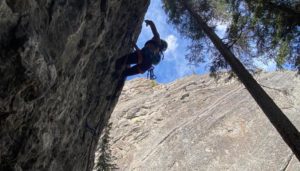The Role of the Banff Centre in Mountain Literature
The facility has announced that nearly 300 people have been laid off. This piece on why the Banff Centre is important for mountain writers was written before the covid outbreak
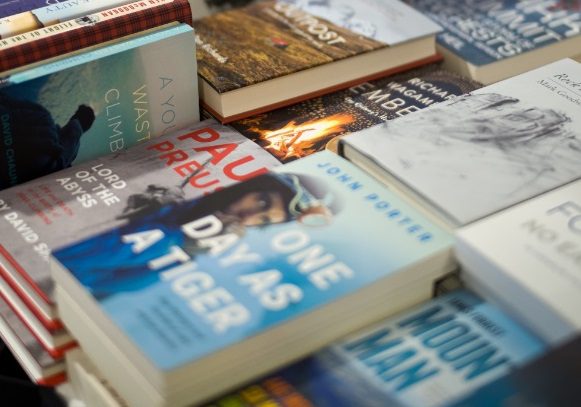
As an adolescent, when my earliest desires for mountaineering took form, I pored over every piece of writing I could get my hands on. Some of my forays took place in libraries and used bookshops as I quested for the stories, photographs and descriptions that would help draw the maps (mentally and physically) I would need for this strange new land. In those days, I had limited grasp of the meaning of much of what I read – some books were heavily laden with technical terminology and I was completely ignorant. I was hungry for all of it, couldn’t differentiate between instruction and narrative, and didn’t much care whether it was current or I was reading about something that had occurred in the 1930s.
Regardless of my knowledge level, what did draw me in was the realization that the adventures and situations described in those pages often contained a kind of “voice.” There were many times when I encountered words that were not just of actions, but were of reflections and feelings, as the writers tried to make sense of the landscapes within them. In the best of these stories, it appeared as though climbing led not just to summits, but to language that gave shape to life and all of its questions. It continues to move me to this day.
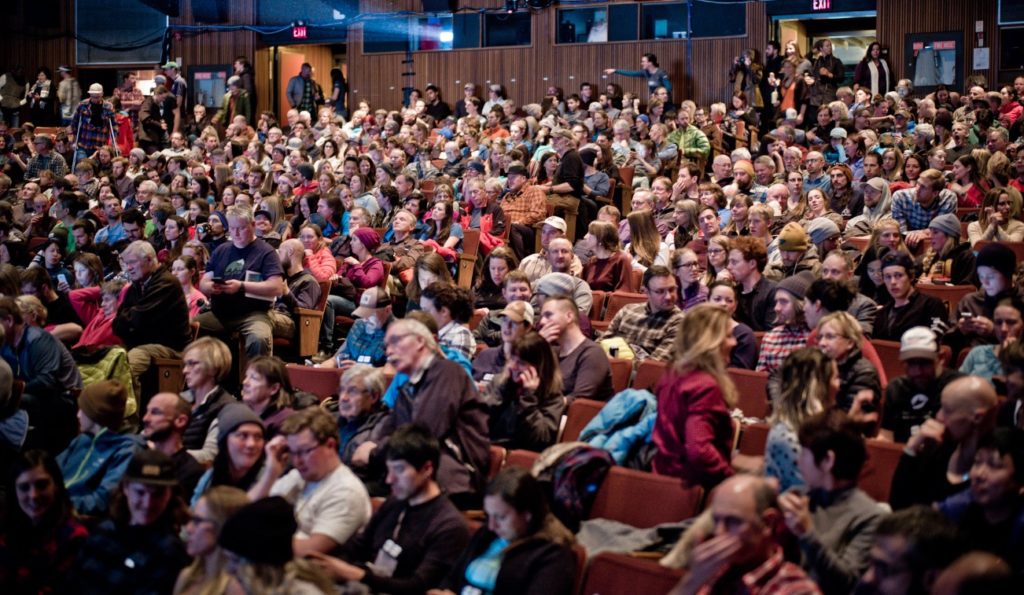
Expression – genuine or otherwise – is everywhere now. Every second, “influencers,” vloggers and bloggers share their thoughts, opinions and adventures. An “adventure” can be a discussion of this afternoons lead of a brittle WI6 pillar with minimal protection, or it can be a discussion of the drama in finding a suitable ramen spot in a foreign city. It has never been so easy to share everything.
But good writing – like good photography or good filmmaking – is different, and probably doesn’t happen by accident. It takes desire but it also takes time, skill, practice, and advice. For the climbers and adventurers on this path, one of the most important places where expression, community and recognition all come together is the annual Banff Centre Mountain Film and Book Festival. Truly a global event, filmmakers and writers share the best of images and words, much of it in competition for a series of awards. But beyond the festival, many people are unaware of the other role the Banff Centre has played in giving shape to mountain writing as we currently know it.
For a number of years, somewhat of a wellspring has existed at the Banff Centre for Arts and Creativity, supporting students across many artistic disciplines including literary arts. The Banff Mountain and Wilderness Writing Program, as it is known in its latest incarnation, was launched by Bernadette McDonald, the founder of the mountain culture programming in Banff. An award-winning author herself, McDonald saw the need to not only showcase mountain literature alongside films during the festival, but also “a training/educational program that would feed into the Festival, and develop people into mountain literature.”
She formed a faculty, which now consists of Marni Jackson, a journalist, writer and editor; Tony Whittome, who was Editorial Director at Random House UK; and Harley Rustad, Editor at The Walrus Magazine. The festival and the writing program together have slowly shaped the wilderness literature world. Whittome says that while the focus amongst the earlier participants was mountaineering, the content has broadened considerably since 2005. “In adding ‘wilderness’ to the title of the program, we can interpret this however we like…wilderness of the soul, hikers, cyclists. It’s the only mountain writing program which is multi-genre. We’ve had books, podcasts, a graphic novel, magazine articles, some poetry and memoirs.”
Rustad describes the format of the writing program as one of “uninterrupted space and shared experience among the editors, the faculty and the others in the program. This really helps bring forth what you’re working on.” Jackson adds, “We’re trying to make them write the best possible piece and grow the craft. There’s a real focus on the literary standards. And of course, we do touch on some aspects of the publishing business.”
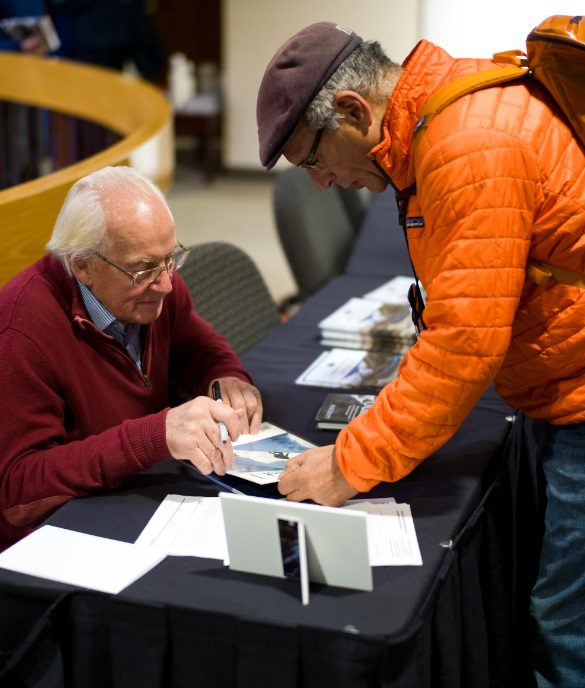
The effects of the festival and the program have been meaningful. Over the years, many published, nominated and award -winning titles have been catalyzed there. McDonald said, “I’m pretty confident that the festival has showcased a number of authors and helped their careers. And the writing program has done more than that, providing quiet time, discipline, mentoring, and feedback.”
Brian Hall is an accomplished climber, guide, filmmaker and writer, and along with John Porter was one of the main architects of the Kendal Mountain Festival in the UK. He is also a recent participant in the Banff Program, and supports their overall approach of the integration of broader mandates beyond film. “At Kendal we wanted to also feature painting and photographs,” he said. “The whole aim was to stimulate art. The role of festivals is many branched; Kendal never had a writer mentoring program and I think Banff goes the next step by actually facilitating writers. It’s a nice environment for people to write in seclusion, plus you have active mentoring with faculty and interactions between writers.”
The impacts and relationship of both festival and writing program like Banff can be subtle and also longer-term. Geoff Powter is a climber, writer, editor, and as a key speaker and facilitator at the Banff Festival for many years, he has a broad perspective. And his latest book Inner Ranges: An Anthology of Mountain Thoughts and Mountain People won the 2019 Climbing Literature prize at the Banff Festival.
Powter feels that Banff’s provision of a Canadian voice and presence in the mountain literature world has been critical, and that writing can contain “more pauses and be more reflective than film. And the writing community during the festival is very accessible. Perhaps there’s a greater sense of ‘tribe’ between writers and readers than between filmmakers and their audiences, I’m not sure.” Powter also notes that the quality of literature continues to grow. “The writing program [in Banff] is a big influence, and the participants are top drawer. There are also the other literature programs at the Banff Centre and we could see some cross-over between participants which would further raise the bar.”
In terms of these top-drawer participants, few could argue with the climbing and literary qualifications of Michael Kennedy. From 1974 to 1998 he was editor of Climbing, and from 2009-2012 editor-in-chief of Alpinist. Kennedy said that “after only a week into the program, it by far exceeded my already lofty expectations. The setting, the support; everyone here is serious about the work; self-critical, direct and honest, but not competitive, we’re all in this together. The faculty are skilled. I edited for a living and am familiar with what that means.”
He also described the positive and potentially distracting aspects of the adjacency of the program to the festival, with all of the films, panels and presentations. “[They’re] very valuable, but you have to have discipline; fantastic conversations…but you’re glad when the festival is done you can dive back in. It’s been interesting to see the relationship between the program and the festival. In terms of the influence of this program and the trajectory of mountain literature, I think Banff is very significant. I’ve followed the climbing side of it and what I’ve followed is strong…many really good books have come out of here.”
So what trends are we seeing? McDonald feels that climbing literature is perhaps more retrospective than it’s been in years past. “The introspection carries it to another level.” As does a historical perspective, something she is well familiar with in her work. “You need to look at the actual adventure you’re writing about, in that time and history that preceded it. This has always changed the way people do things. For example, no one is doing the multi-month expeditions now, we have better forecasting, and the writing reflects this.”
Powter noted there is a general feeling that people are not reading as much now, at least books. “The proportion of people who climb and read is way less. At the gym, I asked people “what’s the last mountain book you read?” Hearing nothing, I then asked “okay…what’s the last book you read?” Not many. People spend a lot of time searching online or reading magazines. So that’s the critical component of the literary side of Banff.” Both Powter and Kennedy support the emergence of a guidebook category in the festival. Indeed, the past few years have seen guides which possess not only utilitarian qualities, but literary aspects as well. Ben Tibbets’ recent book Alpenglow is a spectacular example of this intersection.
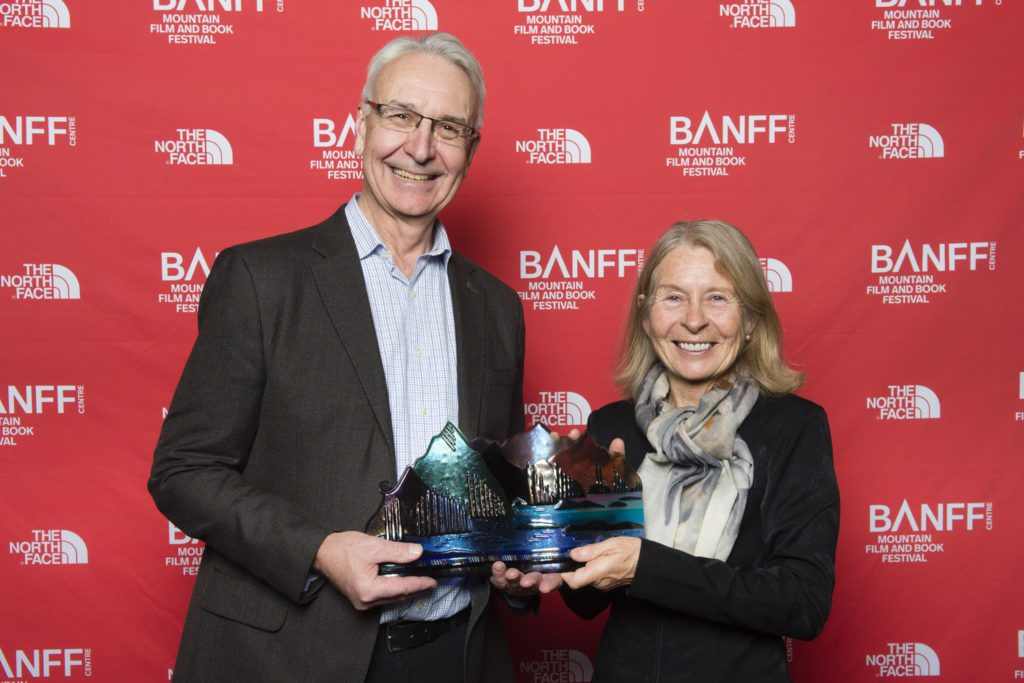
There is discussion in the air at the past several of years at mountain festivals regarding the increase in scope from what were once very mountain and/or climbing-specific topics to now, as Whittome said, wilderness as a broad concept. Some call it a dilution. It’s a topic with strong opinions, although the faculty tries to remain agnostic. Jackson indicates that there is now increased writing that includes a “trojan horse” often to bring in messages on things like biodiversity, as well as more women writing about adventure. Rustad adds, “There are younger writers now who really want to work on environmental stories…in a way to add a whole other layer on top of outdoors writing. There is this enormous push to go on a trip and see how that fits into a changing world.” Whittome confirmed, however, that “climbing and mountaineering is essential to the program and we’ve always wanted to have that as a serious focus.”
The future seems positive for mountain writing. The Banff Festival, and the Mountain Wilderness and Writing Program, appear to be stimulating a lot of interest and engagement; there is, as Whittome says, “an enormous symbiotic relationship between them.” I noted during the 2019 festival, when local alpinist Ian Welsted was interviewed by Powter for the Voices of Adventure series, that he said, “I hope mountain literature will get to the point of really fine literature. I think fiction could really flourish into something bigger. I would like to write fiction. The category is wide open.” I’ve always enjoyed Welsted’s writing and can’t wait to read his fiction.
In all of this, Hall draws a similarity to “passing folklore around the campfire by telling tales. The festival is perhaps a tribal gathering, and the books, articles, poetry is an absolutely important part of this.” As Whittome points out, the practice of climbing is introspective and some of those qualities can lead to good writing. “Climbing writing can raise all kinds of deeper moral and existential virtues and questions.” Climber, author and speaker Margo Talbot put it directly: “Mountain writing wouldn’t be where it is today if it wasn’t for the Banff program. These climbers didn’t know the power of their stories.”
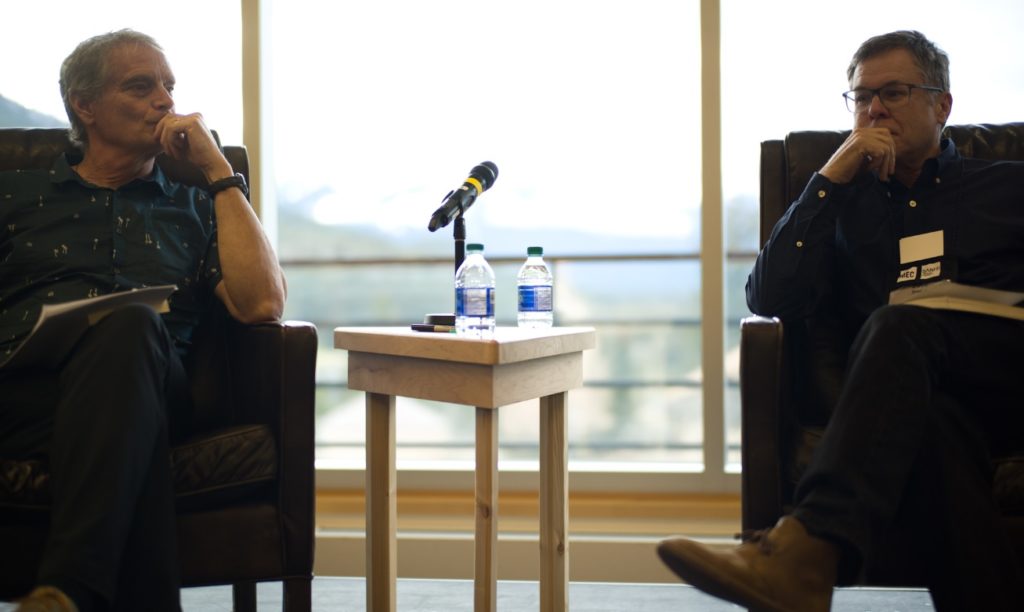
Jon Popowich is a photographer and regular Gripped book reviewer. This piece appeared in our April/May 2020 issue.
